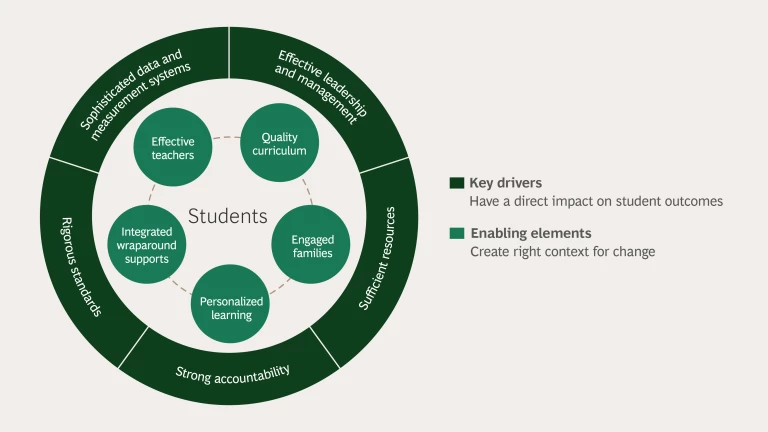BCG’s K–12 Transformation Framework
Our K–12 transformation framework helps schools rethink how they deliver K–12 education, by combining the drivers that directly impact student outcomes with the enabling elements, such as personalized learning, that create the right context for change. Our approach defines and enables the advances needed to effectively implement 21st century learning and promote student achievement and graduation rates.
Our framework brings together everyone in the local K-12 education ecosystem—school operators, businesses, local and national partners—and creates a team that is committed to improving student outcomes. It then incorporates five elements to create the right context for change:

- Effective Leadership and Management. Establish programs to upgrade the quality of K–12 education leadership in school districts and schools.
- Sufficient Resources. Provide adequate funding and robust physical and technological infrastructure for schools.
- Strong Accountability. Develop policies to hold states, districts, schools, and teachers accountable for student outcomes.
- Rigorous Standards. Set rigorous K–12 education standards and requirements (such as Common Core).
- Sophisticated Data and Measurement Systems. Create reporting systems that enable real-time decision making and accountability.
Our K–12 Consulting Work with Clients


Our Insights on K-12 Education










